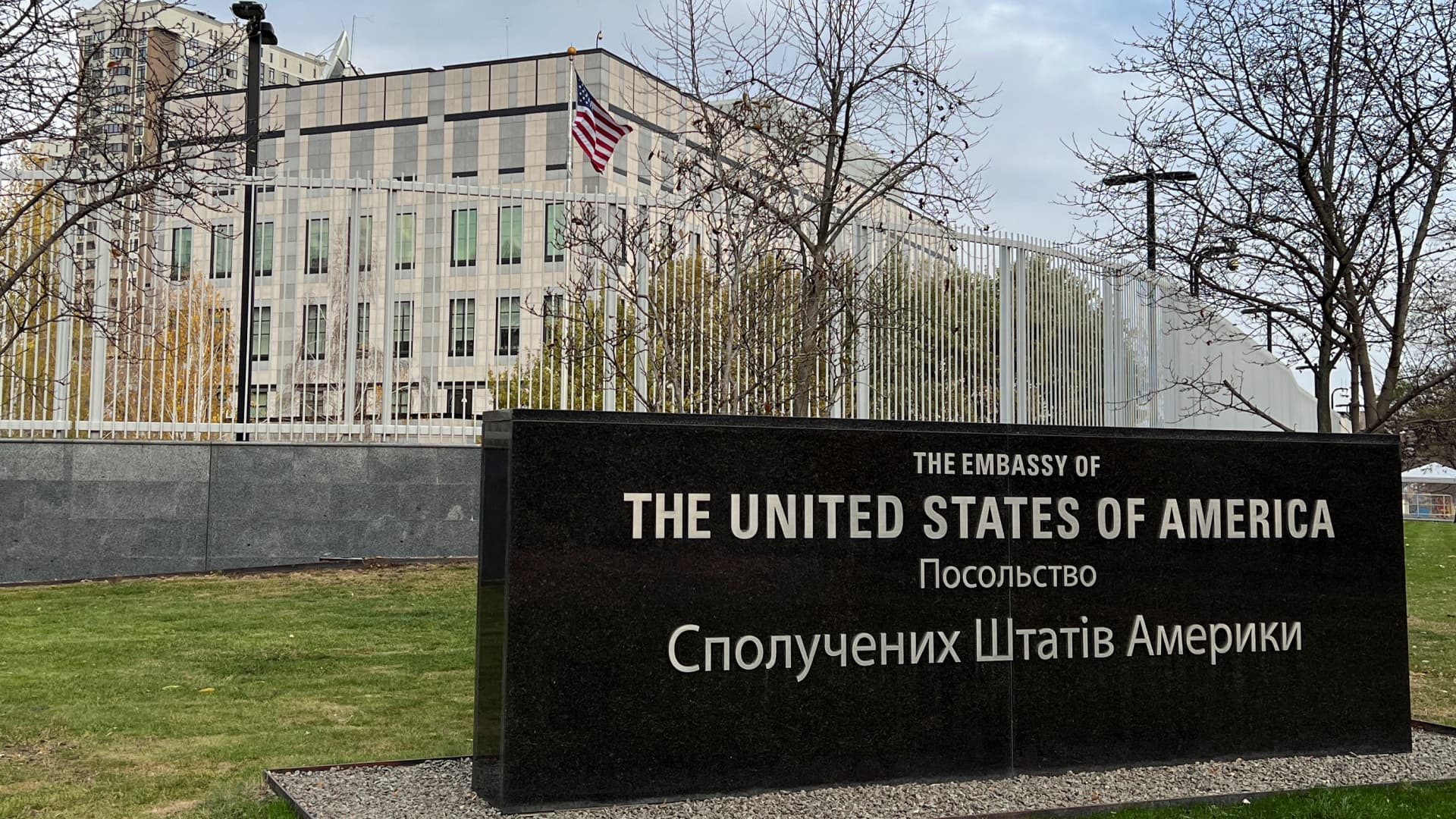
A view shows the U.S. Embassy, amid the Russian attack on Ukraine, in kyiv, Ukraine, November 20, 2024.
Sergiy Karazy | Reuters
The United States closed its embassy in kyiv on Wednesday, warning that it had “received specific information about a potential significant air attack” amid growing tensions with Russia.
The U.S. Embassy said in a statement that it was closing the building “out of an abundance of caution” and asked embassy employees to shelter in place.
“The US Embassy recommends that US citizens be prepared to immediately seek shelter in the event of an air alert being announced,” the statement added.
Asked to comment on Wednesday’s embassy closure, Kremlin press secretary Dmitry Peskov said only that the move concerned “the course of the special military operation,” as Russia describes its ongoing war against Ukraine.
Air alerts in kyiv are frequent, as the Ukrainian capital suffers frequent drone and missile attacks from Russia. But the latest alert comes amid growing tensions between Moscow and Washington, after reports that the White House authorized Ukraine on Sunday to use US-made long-range missiles to attack targets on Russian territory.
On Tuesday, the Russian Defense Ministry said it had intercepted five US-made ATACMS missiles and destroyed another, used by Ukraine to attack its border region of Bryansk. Ukraine has not officially commented on the possibility of an attack using US-made long-range missiles.
The Pentagon also declined to comment when asked about the development.
The attack, however, sparked a furious response from Moscow, with Foreign Minister Sergei Lavrov calling the move an “escalation” by the West.
A U.S. Army Tactical Missile System (ATACMS) is fired during a joint training exercise between the United States and South Korea, Oct. 5, 2022, at an undisclosed location.
Handout | Getty Images News | Getty Images
The Kremlin has repeatedly warned the West against allowing Ukraine to use its long-range weapons against targets on Russian soil. On Tuesday, President Vladimir Putin approved amendments to Russia’s nuclear doctrine, changing the parameters under which Moscow can use nuclear weapons.
The updated document now states that any aggression against Russia by a non-nuclear state supported by a nuclear power will be considered a joint attack.
It also points out that the Kremlin could use nuclear weapons in the event of a critical threat to its sovereignty and territorial integrity – and that of its ally Belarus – and that launching ballistic missiles against Russia would be considered the one of the conditions that could justify a nuclear response.
Russian intelligence chief Sergei Naryshkin said Wednesday that the West “understands that the adjustments announced by Putin largely devalue the efforts made by the United States and NATO to inflict a ‘strategic defeat’ on our country, while planned expansion of the list of grounds for use “The use of nuclear weapons effectively excludes the possibility of victory over the Russian armed forces on the battlefield,” he said in an interview with National Defense media, in comments translated by NBC News.
“Our enemies are forced to admit that the Russian president’s determination to firmly defend the country’s fundamental interests by all available means reduces the room for maneuver of Washington and Brussels. The attempts of various NATO allies to participate in “Remote strikes with Western weapons deep into Russian territory will not go unpunished,” he added.
https://www.cnbc.com/2024/11/20/us-closes-embassy-in-kyiv-warning-of-potential-air-attack.html




